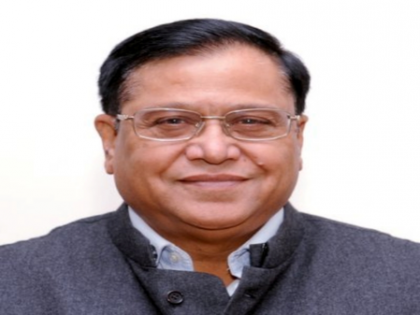NITI Aayog working to identify, resolve key barriers within Indian R&D landscape
By IANS | Updated: May 28, 2025 21:23 IST2025-05-28T21:18:34+5:302025-05-28T21:23:11+5:30
New Delhi, May 28 The NITI Aayog on Wednesday stated that it is working to identify, resolve key ...

NITI Aayog working to identify, resolve key barriers within Indian R&D landscape
New Delhi, May 28 The NITI Aayog on Wednesday stated that it is working to identify, resolve key barriers within Indian research and development landscape.
Dr. V.K. Saraswat, Member, NITI Aayog, reiterated the commitment of the erstwhile Planning Commission to enable structural reforms and create a more agile, innovation-friendly policy environment.
He said this at the two-day consultative meeting held at the Governor's House in Lucknow, where discussions focused on identifying systemic challenges impeding the growth of a robust research culture in India.
To address systemic challenges, NITI Aayog said it "is undertaking a comprehensive exercise to identify and resolve key barriers within the Indian R&D landscape, with a particular focus on government-funded institutions and laboratories".
"This initiative aims to streamline processes, improve fund flow mechanisms, enhance accountability, and create an enabling environment that fosters innovation and collaboration," it added.
During the meeting, Uttar Pradesh Governor Anandiben Patel stressed the need for partnership between academia, government and industry to boost India's potential for science and technology.
"Collaborative efforts between academia, government, and industry are a must to unlock the country’s full scientific and technological potential," said Patel.
The meeting witnessed participation from over 50 laboratories, research institutions, and universities, reflecting an inclusive representation of India’s scientific and academic community.
Participants raised critical issues, including the highly bureaucratic nature of the R&D approval system.
They also expressed concerns "over the low national expenditure on R&D, delays in fund disbursals, and procurement bottlenecks in acquiring specialised scientific equipment".
The lack of private sector engagement in research, along with time-consuming ethical and regulatory clearances, was highlighted as further impediments to scientific progress.
Stakeholders also pointed to the ongoing brain drain, driven by better career prospects, infrastructure, and funding opportunities abroad.
Disclaimer: This post has been auto-published from an agency feed without any modifications to the text and has not been reviewed by an editor
Open in app